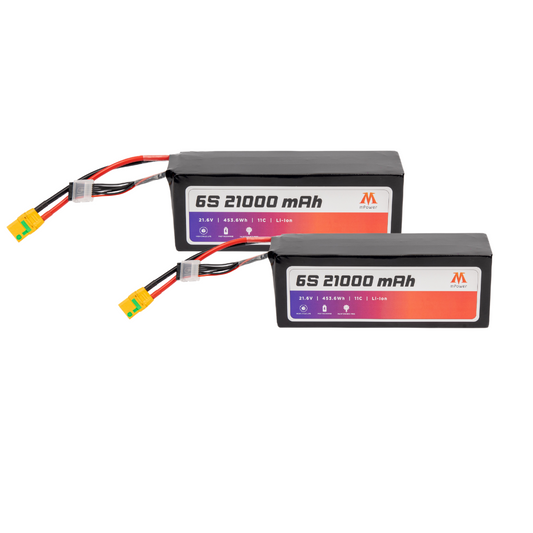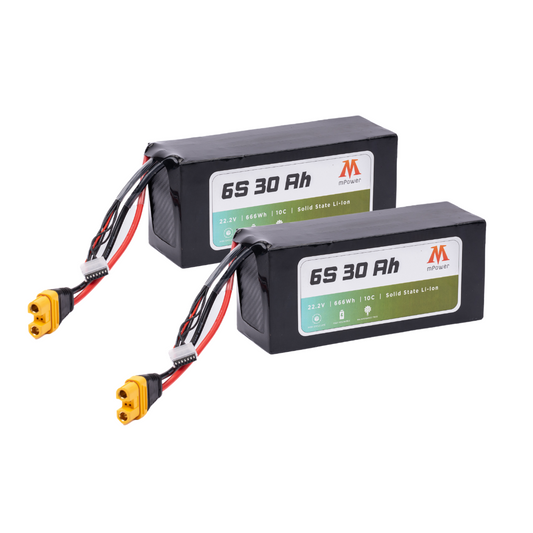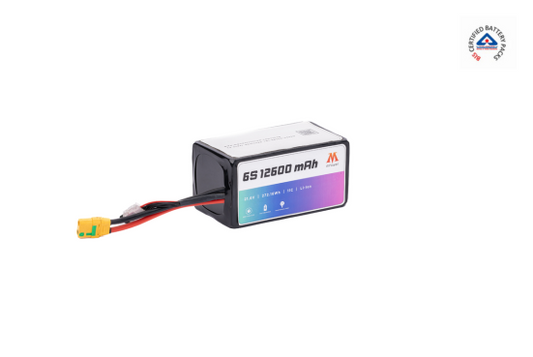The agricultural industry has significantly transformed in recent years by integrating modern technology. One specific technological advancement that has revolutionized farming practices is the drone. Drones, also referred to as Unmanned Aerial Vehicles (UAVs), have become essential tools for farmers and agronomists. These flying devices provide numerous advantages that boost productivity, lower expenses, and promote sustainable farming methods.
In this blog post, we will delve into seven key benefits of utilizing drones in agriculture.
1. Precision Agriculture
Precision agriculture is a farming technique that optimizes field-level management to improve crop farming. This approach aims to increase profitability, sustainability, and environmental protection. One important tool in precision agriculture is drones having a good lithium ion drone battery, that provides farmers with real-time, high-resolution aerial imagery and data. By analyzing this information, farmers can make informed decisions about planting, irrigation, fertilizer, and pest control. This targeted approach allows farmers to allocate their resources more efficiently by addressing specific areas of concern within a field. As a result, it leads to higher crop yields and reduced input costs.
2. Crop Monitoring
Crop monitoring is a labor-intensive activity that requires significant time and resources. Conventional methods involve physically inspecting fields for pests, diseases, or nutrient deficiencies. However, drones offer a much more efficient solution. With advanced cameras, sensors, and drone rechargeable battery drones can capture detailed images of crops from above, identifying potential problems early. This allows farmers to take immediate action to prevent crop damage and maximize yields.
3. Irrigation Management
Effective water management is crucial in agriculture to prevent the wastage of valuable water resources and ensure optimal crop growth. One method that farmers can utilize is employing drones equipped with long lasting agriculture drone battery and thermal imaging cameras and moisture sensors. These advanced technologies enable the assessment of soil conditions and plant stress levels. By analyzing this data, farmers can customize their irrigation schedules, ensuring that crops receive the appropriate amount of water at the right time. This approach not only conserves water but also promotes healthier crop growth.
4. Pest and Disease Detection
Pest and disease control poses a major obstacle in agriculture. Detecting these issues early is crucial to preventing widespread crop damage. Drones equipped with advanced cameras, such as multispectral and hyperspectral, can identify even the slightest changes in plant health that may go unnoticed by humans. This allows farmers to quickly pinpoint affected areas and apply targeted treatments, minimizing the need for extensive pesticide use and reducing environmental harm.
5. Crop Scouting
Crop scouting has traditionally required manual field inspections to evaluate the health and growth of crops. However, drones offer a more efficient solution. With their ability to cover large areas quickly, drones provide farmers with accurate and current information about their fields. This real-time data empowers farmers to make timely decisions, such as adjusting nutrient application or scheduling harvests at the most opportune moment, ultimately maximizing crop yields.
6. Livestock Management
Drones have applications beyond just crop-related tasks; they can also be advantageous for managing livestock. Farmers can utilize drones to keep a close eye on the health and behavior of their animals, track their movements, and identify any potential issues. For instance, drones can help detect escaped animals, assess the integrity of fences, and even deliver feed to remote areas. These capabilities ultimately enhance overall farm efficiency while simultaneously promoting better animal welfare.
7. Environmental Benefits
Agriculture drones play a crucial role in promoting sustainable farming practices by minimizing agriculture's environmental footprint. Through precision agriculture, drones assist in reducing the overuse of fertilizers, pesticides, and water resources. This benefits farmers financially and mitigates the harmful impact of agricultural runoff on soil and water quality. Additionally, drones can be utilized for reforestation endeavors, erosion prevention, and environmental monitoring to safeguard and revive ecosystems.
Why mPower Batteries?
mPower Lithium is an Indian company that manufactures a lithium-ion drone rechargeable battery and other applications. Our lithium ion drone batteries are known for their high quality, performance, and reliability. We produce drone batteries using the latest lithium-ion battery technology and manufacturing processes. Our agriculture drone batteries are also BIS certified, which means they meet the Indian safety standards for lithium-ion batteries.
Final Thoughts
The use of an agriculture drone has revolutionized farming practices, emphasizing the importance of data-driven decision-making, efficiency, and environmental sustainability. These versatile tools offer numerous advantages, including precision agriculture and crop monitoring, pest control, and conservation efforts. As technology continues to progress, drones are supposed to play an even more significant role in shaping the future of agriculture.
This will help farmers meet the challenge of feeding a growing global population while minimizing the industry's ecological impact. With their ability to provide real-time insights and streamline various farming processes, drones have become invaluable allies for modern farmers. They drive innovation and fuel growth in the agricultural sector.












